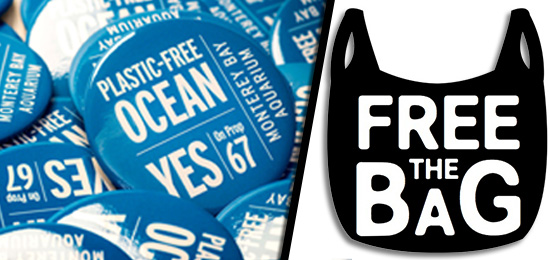News November 10, 2016
California Voters Uphold Plastic Bag Ban
California voted to pass Proposition 67 on Tuesday, upholding the statewide plastic bag ban that was enacted two years ago. The results for the referendum were 52% in favor and 48% against the ban. Poll data shows that coastal counties and urban population centers greatly contributed to the proposition’s passing. San Francisco, which passed its own bag ban in 2007, had the largest margin of support, with 75.4% of voters in favor of upholding California’s Senate Bill 270, the ban that was passed in 2014.

“Big Plastic, instead of acknowledging the end-of-life impacts of their products, spent millions employing lawyers, lobbyists and P.R. firms to try to pull the bag over our eyes,” says Andy Keller, founder and CEO of California-based ChicoBag Company (asi/44811) and a vocal advocate for plastic bag reductions. “The passing of Prop 67 clearly demonstrates that companies that don't take responsibility for the end-of-life impacts of their products, in the end, will fail.”
Lee Califf, executive director of the American Progressive Bag Alliance (APBA), a lobbyist organization dedicated to fighting plastic bag bans, told Counselor that voters have set themselves up for a serious case of “buyer’s remorse.”
“The referendum on SB 270 offered voters a chance to reject a terribly misguided law to ban one hundred percent recyclable, highly reused plastic retail bags and allow grocers to charge a minimum 10 cents each for paper and thicker plastic bags provided at the checkout,” Califf said. “At the end of the day, the only ‘green’ element of this law was the hundreds of millions of dollars grocers stood to profit from the mandated bag fees.”
Proposition 65, a ballot measure connected to Prop. 67 which would allocate revenue generated from the sale of the paper bags to the new Environmental Protection and Enhancement Fund managed by the state's Wildlife Conservation Fund, failed to pass with 55% voting “No.”
“While we are disappointed in the narrow passage of Prop. 67, we are even more disappointed that voters said no to Prop. 65,” Califf said. “Now, instead of bag fees going to an environmental fund, grocers will keep hundreds of millions of dollars in new profits without providing any public benefit. This type of special interest giveaway cloaked in false environmentalism sets a terrible public policy precedent – one that Californians will likely soon regret at the checkout.”

Opposite the APBA is Yes on 67, a coalition of environmental groups, grocers, elected officials and consumer organizations who supported the ban. A spokesperson for Yes on 67 said the group was refraining from comment until the Associated Press declares the official voting results for the proposition. “Half the state already has a ban in their community,” Yes on 67 Spokesman Steven Maviglio told Counselor two months before the vote. “They understand that it works. To try and convince them otherwise is political malpractice and a colossal waste of money.”
Nearly 150 cities and counties in California had already banned groceries and drug stores from giving single-use plastic bags, but now all customers in the state will have the choice of paying at least 10 cents for recycled paper bags or bringing their own reusable tote bags from home. The bans have proved beneficial to distributors, who have been able to increasingly sell branded reusable bags. “Business has gone up in the past few years,” Ryan Kaback, a partner at San Diego-based Custom Logos (asi/173183), told Counselor prior to the vote. “We’ve sold more tote bags than ever before.”
The APBA sparked the Prop. 67 referendum by exercising a provision in the state constitution that allows for a popular vote on a law before it takes effect. The APBA spent almost $3 million to collect the 504,760 valid signatures required to put this measure before voters, according to state election data.
California is the first U.S. state to enact a statewide ban. Major cities such as New York and Chicago have also passed bans, as well as more than 100 counties and municipalities across the country.
